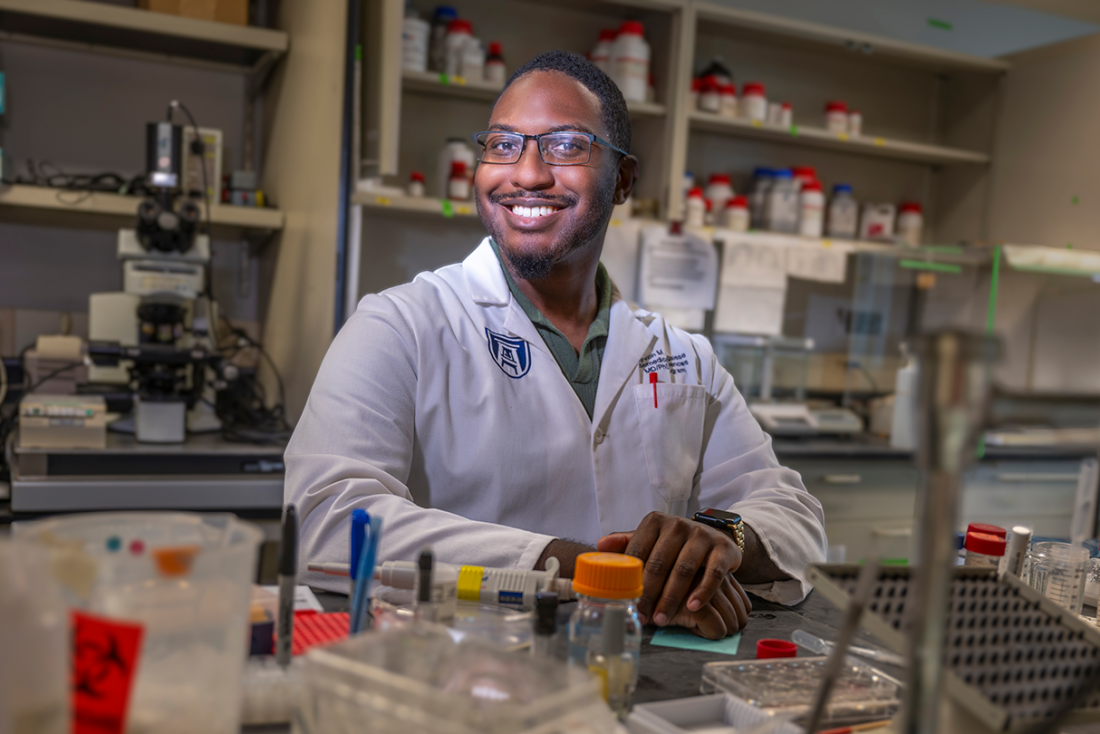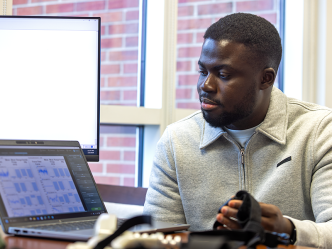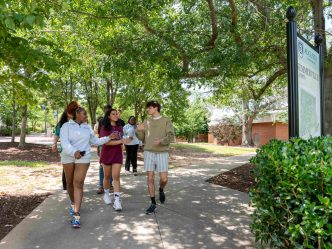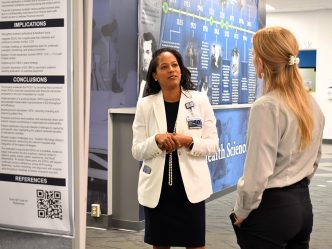Jayvon Nougaisse, a fourth-year neuroscience MD/PhD student at the Medical College of Georgia at Augusta University, knew he was destined to pursue a career in health sciences from an early age.
“When I was a kid, I used to watch a bunch of different science TV shows, and I just remember finding that so cool. So that’s definitely a big part of it. But later on, I realized health is wealth, and there’s a lot of people who need help and treatments who aren’t getting them in the best way, and there are a lot of gaps in the system as far as accessing treatment,” Nougaisse said. “It’s cliché, but helping people is the main reason why I wanted to pursue the health aspect of things.”
After finishing high school, Nougaisse had plenty of college options to choose from when deciding where to go for his undergraduate degree. But a few things stood out to him about Augusta University: its BS/MD Professional Scholars Program, which would shorten his undergraduate experience by a year, its affordability and its proximity to his hometown of Atlanta.
So, he became a Jaguar – a pre-med student studying cellular and molecular biology. This path led him to the lab of Xin-Yun Lu, MD, PhD, the chair of the Department of Neuroscience, in which he still works as a student researcher.
“I actually found her lab in undergrad. I was just emailing professors, and she was like, ‘We’re looking for motivated students,’ so I joined her lab, did a couple of experiments and realized I really liked it,” he said. “So, I started working in the lab, and I’ve been there ever since.”
Nougaisse said he fell in love with neuroscience before he started his undergraduate degree, but he realized that he wanted research to be a part of his career after he started working in Lu’s lab.
“After I started my med school journey, there was the option to join the MD/PhD program, so I took that path,” he said. “Whenever I was in medical school learning about all these different pathologies, especially in neuroscience, I realized the treatments we have for these pathologies are kind of lacking.
“There’s definitely more research that needs to be done to develop more effective therapies,” he continued. “And then when I get to the PhD side, all this research is being done, but how can we apply it to medicine, and how can we make it so that it is translatable and that patients can actually use these therapies? I think that’s really what made it clear to me that MD/PhD was the best path forward.”
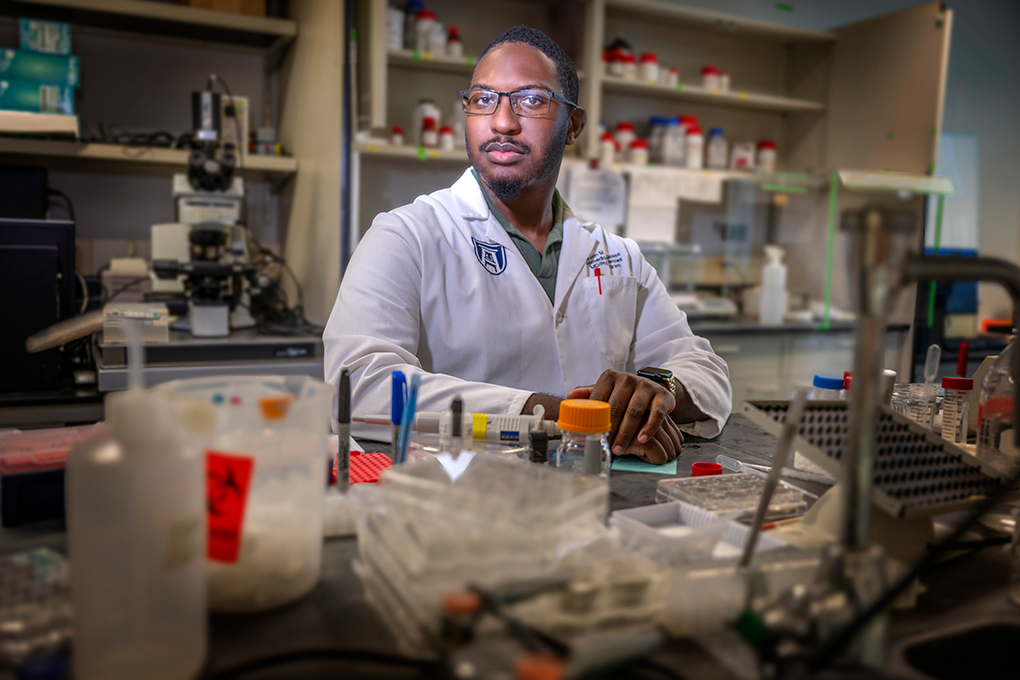
In the MD/PhD program, students complete their first two years of medical school, then complete all of their PhD requirements and then go back and finish the last two years of medical school. The process typically takes six to eight years.
“A lot of people see medicine and science as two separate worlds. And after joining the MD/PhD program, I realized how separate they are, but I also realized how connected they are in some aspects and how both of them need each other in order to be at their best,” Nougaisse said. “I joined the program to be able to use both my medical knowledge and my research knowledge to find cures and treatments for these diseases that we really have no idea what’s going on or how we can even approach them.”
Although up to six students are accepted into the program each year, Nougaisse is the only student in his cohort. However, he isn’t without support – his older brother, Joshua, who is now in residency, graduated from MCG this past spring.
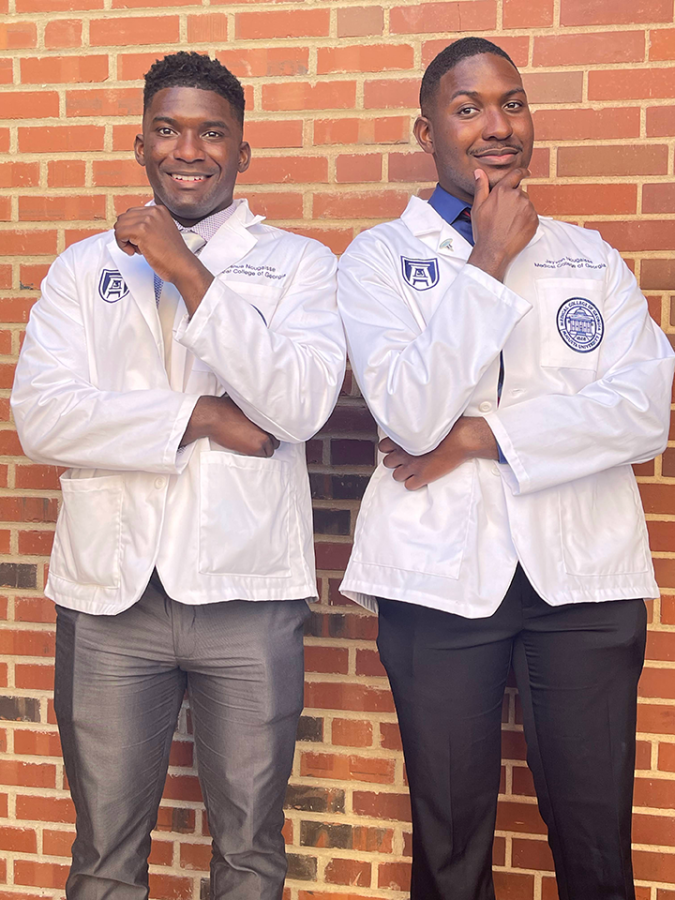
“It was really cool to have him and go through classes with him. We still had our separate social groups in med school, but I could always reach out to him if I needed help with anything, and we actually ended up getting a house together in Augusta, so we were living together for his final years of med school,” Nougaisse said.
Nougaisse’s fiancée, Ananya Chakraborty, is also a fourth-year MCG student.
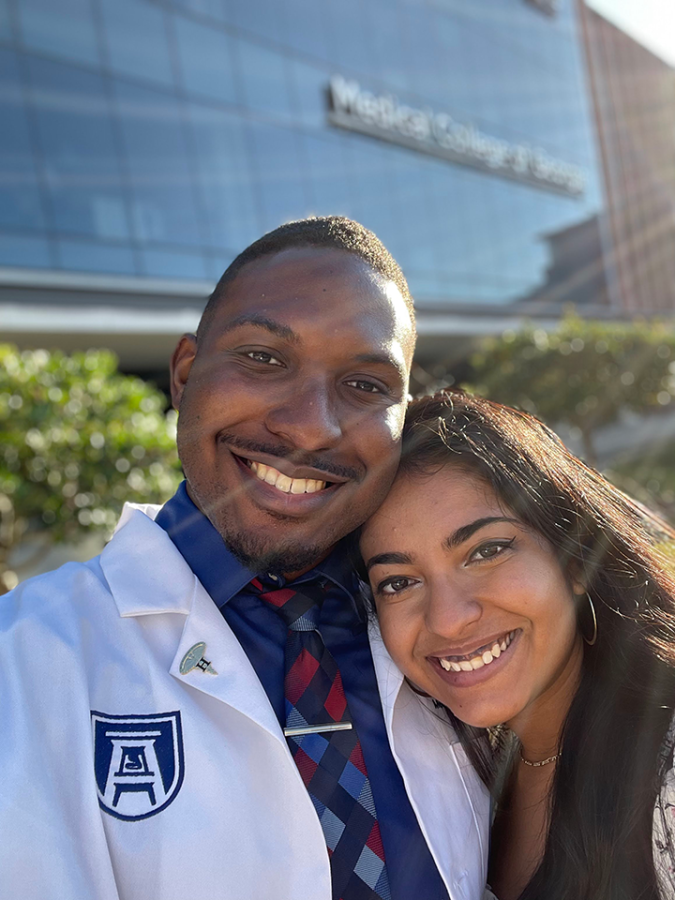
“It’s going to be a little tougher just because she graduates medical school in the spring of 2026, so we’re going to be long distance for a couple of years, but she’s just been very supportive, and, honestly, I can’t imagine having done this process without her,” he said.
As far as support for his specific curriculum, Nougaisse is able to act as both a mentor and a mentee for people who are further along or just starting their MD/PhD programs.
“Twice a year we have dinners with the entire cohort, and it’s really interesting to be able to talk and discuss with people who are in their last year of medical school to people who are fresh and just joining the program,” he said. “I’m able to ask for advice and help whenever I’m going through research, and I’m able to have mentorship from the years above me. And then on the flip side, I can mentor those below me on how to approach those first few years of medical school and really how to handle the transition between med school to PhD.”
After Nougaisse graduates in 2029, he plans on completing a residency with a research track. After that, he wants to open his own lab.
“In the beginning, I would definitely lean more toward research just because of the competitive nature of it and the amount of work required to start your own lab,” he said. “But I think later on I would shift more toward the clinical aspect. If I were to give a specific number, it would be like 80/20 in the beginning and then shifting more toward 60/40 later on.”
Eventually, he wants to shift his focus to psychiatric diseases.
“Currently, I’m working on Alzheimer’s disease and working on the mechanisms and biology behind that disease specifically,” he said. “But really, when you look into psychiatric diseases, there’s even less research for those compared to neurological diseases. In the future, I think that’s where the greatest need will be.”
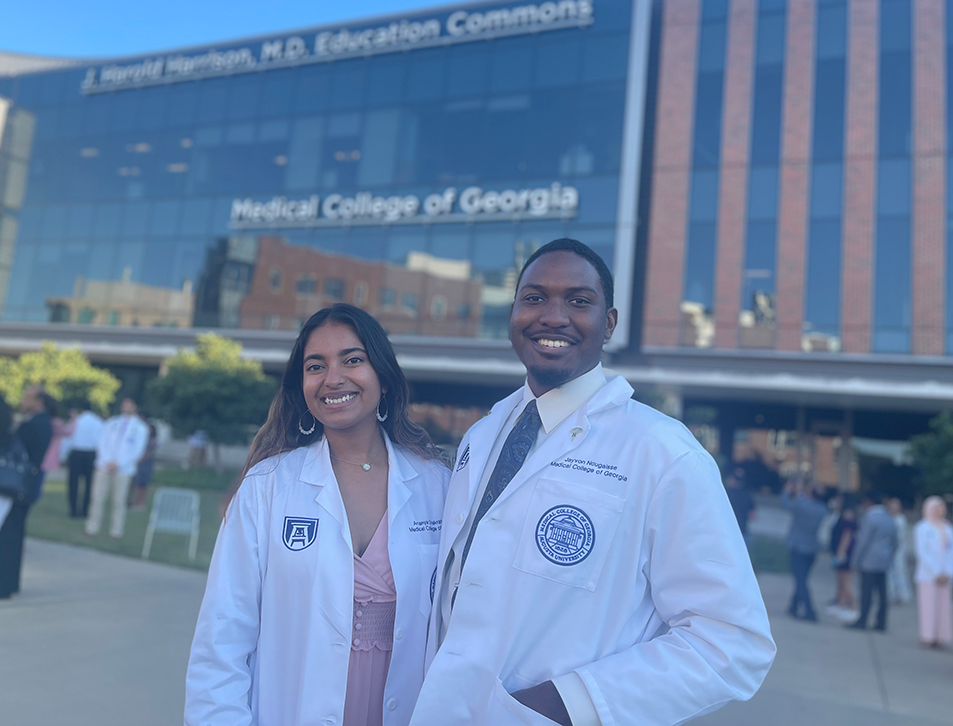
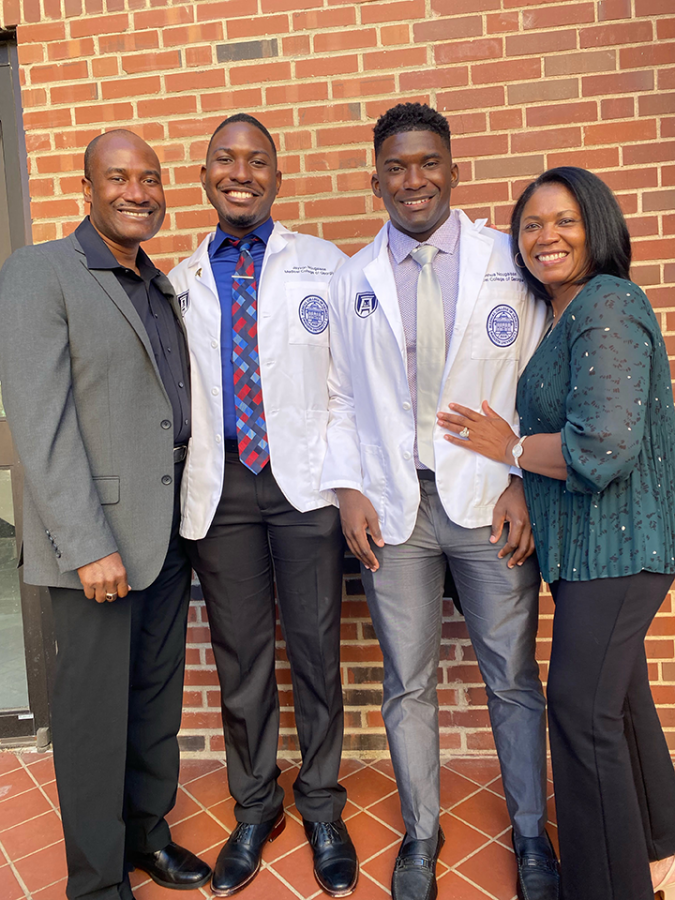
Throughout his collegiate career at AU, Nougaisse has had many memorable experiences that have shaped who he is as a person and as a future professional, including being named homecoming king during his last year of undergrad, getting engaged, being involved in groundbreaking research and being accepted into a competitive degree program.
He’s grateful for every opportunity the school has afforded him and is excited to see what’s in store for the rest of his journey.
“I feel like my AU and MCG journey as a whole has been perfect for me, and this is a perfect period of development. By the time I graduate MD/PhD, I’ll have been in Augusta and at Augusta University for half my life, so I think AU and this program have provided the perfect environment to grow, change and step into adulthood,” he said.
 Augusta University
Augusta University
